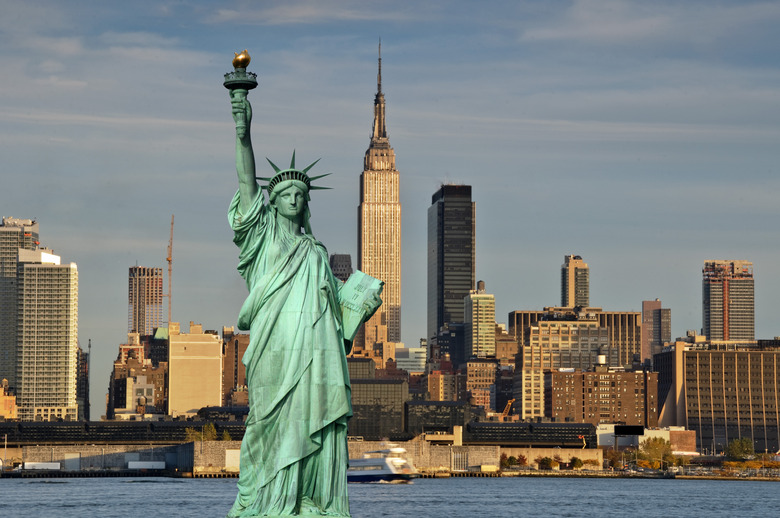Political Factors In Migration
According to the Organization for International Migration there are approximately 192 million people who live outside their place of birth. A majority of these people are migrant workers and they make up 3 percent of the world's population. Human beings have always migrated from one place to another in search of better economic opportunities. But apart from economic factors, there are political factors that cause people to move from their home country to another country. **War, persecution and the absence of political rights are the predominant political factors in migration.**
State Persecution
State Persecution
State persecution involves the harassment, discrimination and torture of people who disagree with their government, have minority religious beliefs or ethnic backgrounds. Because conditions in their country are unsafe, these people are forced to migrate to safer countries. Asylum seeking is a direct result of the outflow of political migrants from an oppressive state to a more democratic country. For example the Migration Policy Institute indicates that the United Kingdom received the highest asylum applications: 555,310 or 15 percent of the total global asylum applications in 2002. These numbers which remain roughly the same, reflect the rise in claims of persecutions in countries such as:
- Iraq
- Zimbabwe
- Somalia
- Afghanistan
- China
Lack of Political Liberties
Lack of Political Liberties
The lack of political liberties and rights, and endemic corruption act as push factors for migrants seeking greater freedoms. Even though they are not persecuted in their places of birth, concerns that limit people's freedoms causes them to leave. If the political environment is hostile, then the economic situation is likely to be poor. This triggers migration for political and economic reasons. Most migrants leave for more democratic countries where they can pursues better careers, education and freedom.
War
War
According to the National Geographics' Earth Pulse there are approximately 42 million people worldwide who have been forced to migrate due to war. War and armed conflict have diverse causes but all these factors are influenced by political issues. War migrants not only migrate to the usual countries such as United States, United Kingdom, Canada and Australia, they also migrate within their own geographical areas such as within their continent. Most war migrants become refugees or asylum seekers. Refugees International indicates that in 2009, there were 15.2 million refugees globally.
Cultural-Political
Cultural-Political
Political instability caused by cultural diversity causes people of a certain cultural affiliation to move within the country or away from their country altogether. As a result of wars or ethnic strife, ethic groups that were initially leaving apart can be forced within the same geographical boundaries. An influx of one cultural group can displace another group. Governments can also force cultural groups to move from one place to another (within or outside the country) to gain political advantage in having less cultural diversity.
Cite This Article
MLA
Mathews, Jayden. "Political Factors In Migration" sciencing.com, https://www.sciencing.com/political-factors-migration-8212756/. 23 April 2018.
APA
Mathews, Jayden. (2018, April 23). Political Factors In Migration. sciencing.com. Retrieved from https://www.sciencing.com/political-factors-migration-8212756/
Chicago
Mathews, Jayden. Political Factors In Migration last modified March 24, 2022. https://www.sciencing.com/political-factors-migration-8212756/
